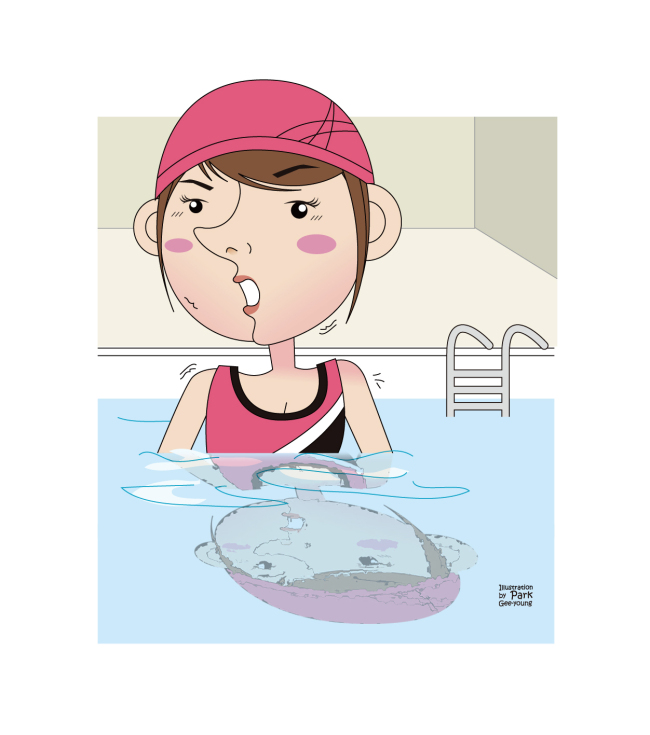Swimming pools and similar environments with high temperature and humidity allow for the presence of various fungi, bacteria and viruses.
These include fungi that cause athlete’s foot, bacteria that cause impetigo, and viruses that cause warts. These diseases can be spread through contaminated water in pools, or via objects that are shared between people, or from the infected person.
Infection sets in faster if the skin is broken. On the other hand, people who have dry or itchy skin may experience worsened symptoms after swimming for a long time. These people should use moisturizers after a shower, when the skin is still moist.
It is also very important to avoid UV light. Prolonged exposure to UV light can lead to sunburn, and in the longer term, can lead to early aging, solar keratosis and skin cancer.
Being outdoors on a summer day with strong UV light increases the risk of getting sunburn. UV light is strongest between noon and 3 p.m., and it is strong even on cloudy days. It can also penetrate thin clothing.
People generally feel itchiness and pain of the skin 6-8 hours after being exposed to UV light, near bedtime. The skin will turn red within 1-2 days, with pain, and can also develop blisters or swelling of the face and the body in severe cases.
Prolonged exposure to strong sunlight can also lead to early aging of the skin, as well as pigmented skin problems such as chloasma. It is therefore very important to wear long sleeves and wide brimmed hats when out in the sun.
With the damage to the ozone layer in recent times, there is a higher risk of developing skin cancer. If you cannot avoid the sun, wear sunscreen before going outside. You should use sunscreen with the Sun Protection Factor of at least 20-30 before going into the sun, and reapply sunscreen every 3-4 hours.
People tend to think that sunscreen with higher SPF scores are better products to help them remain fair. However, this is not correct, and sunscreens with a higher SPF are more likely to contain more harmful substances.
When tanning at the pool or the beach, consider the fact that the sunscreen will be washed away by the water. Reapply sunscreen more frequently. The skin becomes very dry after tanning in the sun, so drink lots of water and ensure the skin gets sufficient moisture by using moisturizers.
Because the pools are cool, people may not notice that they are getting sunburned. If you do become sunburned, use icepacks or cold water on the burned area.
It is also effective to use cool milk or cucumbers on the skin. If there are blisters, this means that the skin has been burned so you should see a specialist doctor. Take care not to let the blisters burst, and if they do become open, sterilize the skin.

Lee Dong-youn
By Lee Dong-youn
The author is a doctor at Department of Dermatology at Samsung Medical Center and a professor of Sungkyunkwan Univeristy School of Medicine. ― Ed.







